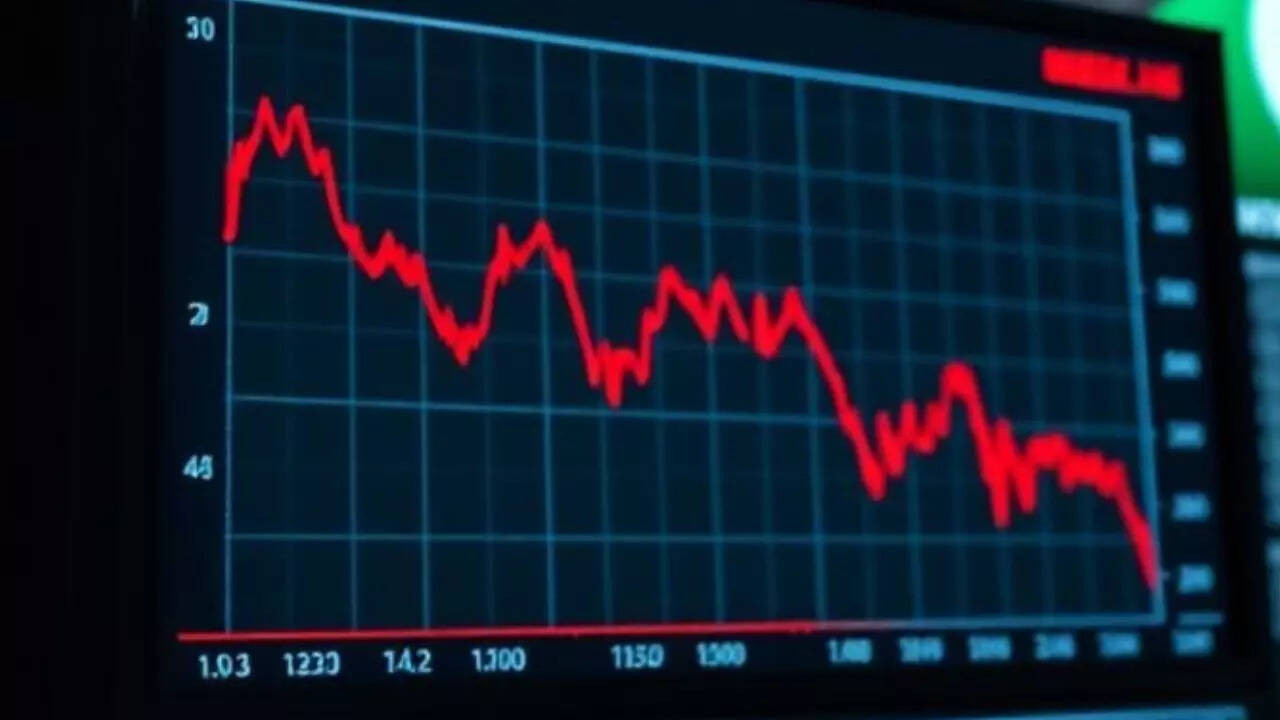Temu’s owner PDD Holdings reported a significant 47% drop in net profit for Q1 2025, reaching 14.7 billion yuan, as US-China trade tensions intensify. The decline is attributed to escalating trade tensions and a new US policy ending customs exemptions for low-value goods, impacting platforms like Temu. Revenue growth slowed for the fourth consecutive quarter, increasing by only 10% year-on-year.
Temu’s Tumble: Is This the Beginning of a Global Shopping Spree Slowdown?
Okay, let’s talk Temu. You’ve seen the ads, right? That dizzying array of everything, all at prices that make you question reality? Well, the parent company behind this online shopping behemoth, PDD Holdings, just dropped some financial news, and it’s not exactly all sunshine and discounted deals.
While Temu’s meteoric rise has undoubtedly disrupted the e-commerce landscape – think of it as the online equivalent of a hyper-discount store, but accessible from your couch – their latest earnings report reveals a bit of a stumble. Profit margins, that golden metric of business health, have taken a noticeable dip. Now, PDD Holdings isn’t exactly hurting. They’re still raking in a lot of cash, but the rate at which they’re doing so has slowed down.
So, what’s going on? The article hints at a confluence of factors, but the elephant in the room is undoubtedly rising trade tensions. We’re not talking about subtle disagreements here; we’re talking about a global game of chess being played out with tariffs and trade restrictions as the pieces. And when those pieces start moving, businesses that rely heavily on international trade – like Temu, which sources the vast majority of its goods from China – feel the pinch.
Think of it like this: suddenly, the cost of shipping those cute cat-shaped measuring spoons or that surprisingly effective phone stand goes up. Tariffs are essentially taxes on imported goods, and those taxes don’t just vanish into thin air. They get passed down the line, often ending up impacting the company’s bottom line or, ultimately, the consumer. PDD Holdings is likely absorbing some of that cost, impacting their profits, but how long can they sustain that?
Beyond the macro-level political climate, there’s also the intensely competitive nature of the e-commerce world. Temu burst onto the scene with aggressive marketing and incredibly low prices, fueled in part by what many suspect are razor-thin margins and hefty subsidies. That initial blitz of attention worked wonders, attracting millions of users eager for a bargain. But maintaining that momentum is a whole different ballgame.
Other established players aren’t sitting idly by. Amazon, for example, isn’t going to cede market share without a fight. And the rise of other budget-friendly platforms creates a constantly shifting battleground for consumer dollars. So, to stay competitive, Temu likely needs to keep spending heavily on marketing, further eating into those profit margins. The question then becomes, can they continue to outspend their competitors indefinitely?
And then there’s the sustainability question. The very business model that makes Temu so appealing – incredibly low prices – also raises concerns about the quality of goods, labor practices, and the environmental impact of mass production and shipping. Consumers are becoming increasingly aware of these issues, and that awareness could eventually impact their purchasing decisions. Will the allure of a bargain outweigh ethical considerations for the masses? It’s a tough question.
This dip in profits isn’t necessarily a death knell for Temu. It could just be a temporary setback, a sign that the initial hyper-growth phase is leveling off. The company has deep pockets and a proven ability to disrupt the market. They could pivot, adjust their strategies, and find new ways to attract and retain customers. They might invest more in quality control, streamline their supply chains, or even diversify their product offerings.
However, this news does serve as a reminder that the e-commerce world is a volatile one. What’s hot today can be yesterday’s news tomorrow. The rise and fall of companies like Temu often provide a fascinating snapshot of the global economic landscape, reflecting the complex interplay of trade tensions, consumer trends, and the ever-present pressure to innovate and adapt.
Ultimately, the future of Temu, and indeed the entire discount e-commerce model, hangs in the balance. The next few quarters will be crucial in determining whether this is just a minor blip or a sign of more significant challenges ahead. One thing is certain: the world of online shopping is constantly evolving, and we’re all along for the ride. Keep your eyes peeled (and your wallets ready!), because things are definitely getting interesting.
📬 Stay informed — follow us for more insightful updates!







